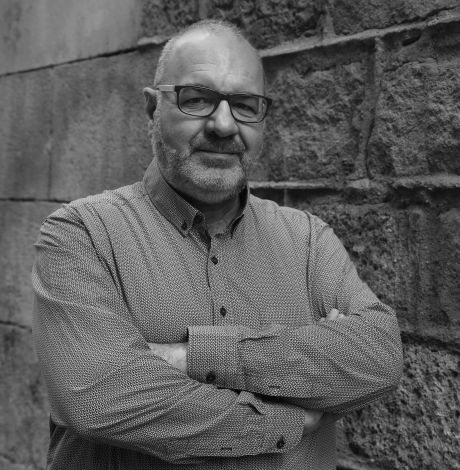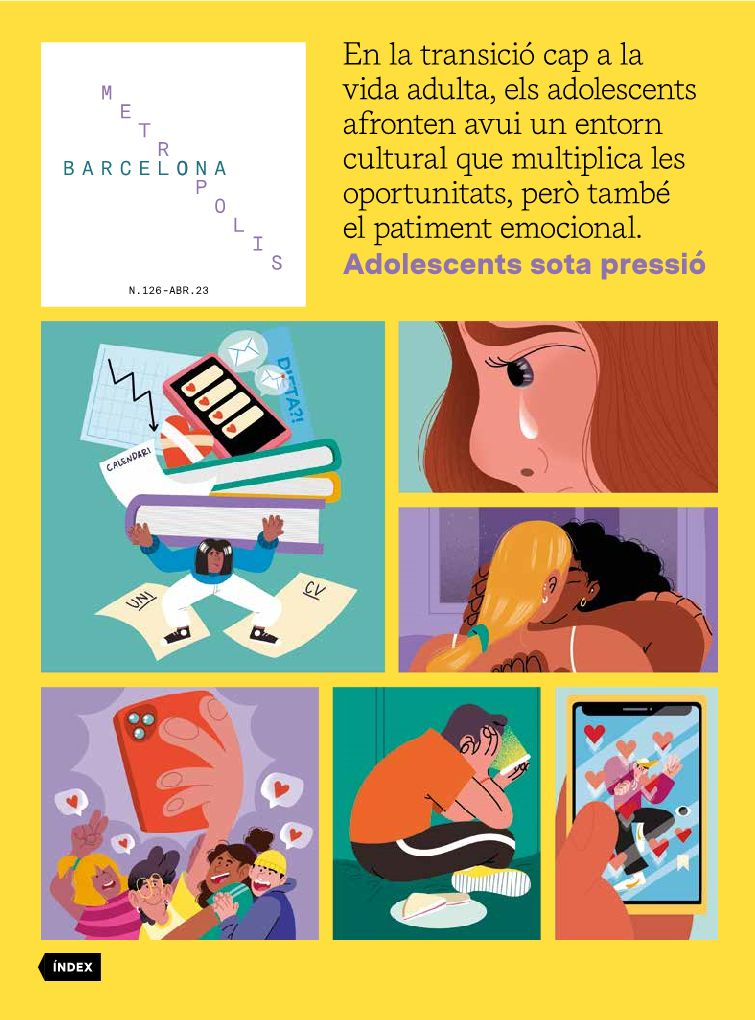“During the procés we played with fire and we got burned”
- Interview
- Apr 23
- 20 mins
Francesc Serés

Francesc Serés connects remotely from Berlin to answer questions from Barcelona Metròpolis. The writer has been living there for a year, shortly after resigning as head of the Institut Ramon Llull, which he directed for just four months. “I have tried to record things that have not been explained or that I think I could explain, to situate them in a tradition and to ensure that they continue. Time will tell whether this will stand the test of time or not”, he declares when asked if his work denotes a way of being in the world. In October 2022, he published the novel La mentida més bonica [The Most Beautiful Lie] (Proa), which follows the story of two teachers on the day they retire. The main characters are two pro-independence activists deeply disillusioned by how the procés movement has evolved.
Francesc Serés (Zaidín, Aragon, 1972) holds a Degree in Fine Arts and Anthropology from the University of Barcelona. As a writer, he has published works in different genres, such as novels (the trilogy De fems i de marbres [Manures and Marbles], La casa de foc [The House of Fire] and La mentida més bonica [The Most Beautiful Lie]), youth novels (El llarg viatge d’A [A’s Long Journey]), short stories (La força de la gravetat [The Force of Gravity], Contes russos [Russian Stories] and Mossegar la poma [Bite the Apple]), theatre (Caure amunt. Muntaner, Llull, Roig [Falling Up. Muntaner, Llull, Roig]), chronicles and essays (La matèria primera [Raw Material] and La pell de la frontera [The Frontier’s Skin]), and journalistic articles. He has been awarded two Serra d’Or Critics’ Awards and the National Prize for Literature, among others. In the institutional arena, in 2016 he was one of the promoters and the first director of the Faber Residency in Olot, and he has also directed the creation department at the Institut Ramon Llull, of which he was director in 2021 for a short period of time.
You claimed that you were affected by what Lluís Salvadó, then Finance Secretary, said on the phone to another politician two months before 1 October 2017. “If we all keep thinking we’re ready and everyone pretends we are, because no one dares to say that the emperor isn’t wearing any clothes, maybe someone will believe we are somewhere where we are not on 2 October”. Is it when Francesc Serés falls off the horse?
It is a wake-up call and everyone has their moment. There are plenty of horses, and there is one horse you can never fall off, as long as the existing conflict is not put right. What we all want is for Catalonia’s cultural, social and even political community to be able to survive in the future. You don’t fall off this horse, because it is a question of historical and cultural justice.
So what changes?
What changes is the degree of trust you placed in some people. It’s gradual, of course, because it depends on each person’s level of conviction. Let’s say you don’t have the same level of trust in 2012 as in 2017. Trust is perhaps a very tricky term. But let’s say that the degree of commitment you think you might have in 2017 is not the same as in 2012, after all the promises that have been made. Not promises in terms of whether a goal can be reached or not, but that the necessary steps have been taken and a scenario has been created in which there is some chance, so that we won’t make a fool of ourselves.
Is that the part that didn’t work?
That’s what the novel is about. From that moment of bewilderment, to denial, to disappointment, and finally, to detachment. That’s when we realise that nothing was ready. They put everything on the line and so did we by trusting them. This is the book’s theme: the trust you place in them and the trust they ask of you, and what is the right balancing point.
At what point did you decide to write the novel?
It is gradually taking shape, because for me it is also part of a fundamental process. I have gone from writing articles in El País to trailblazing activism, with the creation of the Faber Residency and involvement in the Institut Ramon Llull in between. It is a personal process, of commitment to lots of undertakings. It keeps growing and there comes a time when you can’t take anymore, because you can’t deny reality. And this has consequences. If it were something harmless, I would say that nothing happened, but the step backwards is so huge that you have to acknowledge it, and you have to be able to start explaining it. When I eventually decided to leave the Institut Ramon Llull, I felt free to create this novel.
It is a novel with a great deal of reflection, almost like an essay.
It isn’t an essay, but I did try to incorporate this element of reflection that I think we all had for so long. Now I don’t know if people will try to forget all this, but for a long time it occupied so many hours of our conversations. We talked about little else in my circle. We lived and breathed politics for years, life got mixed up with politics and politics got mixed up with life, which meant dialogue, a lot of talk and discussion, and I don’t think something like that, involving so many people, had happened since the Transition, which I didn’t experience. So I didn’t want to create a novel about action, about hiding ballot boxes, because that wasn’t the point. The point was to narrate something evanescent, abstract and so profound for so many people, which had been expressed in words and narrated, a little or a lot, inside everyone’s head.
Why do you set the action in El Penedès, with two teachers who are retiring?
When I was writing it, my aim was for people to be able to finish it. Why? Well, because I was giving the reader a message that, at first, they don’t want to hear or will have trouble reading. So I didn’t want to use anything outlandish. The Alt Penedès is a plausible place for the story to unfold and it is a recognisable place. The secondary school teachers are also relatable characters. I didn’t want to create a complex novel, with facts that are hard to believe or to situate in the times we have lived in. We all have friends who are secondary school teachers, and these teachers are the mainstay of each place.
So is the plot secondary?
There is the plot involving internal, political and personal reflection, the narrative of disenchantment and of how we got here. Even when there is someone who tries to explain it, namely Nicolau in the final dialogue, he doesn’t quite succeed, because the time has not yet come for him to be able to move on.
Does more time have to elapse?
To bring it to fruition, but not to recount what happened. The novel doesn’t narrate the whole process, but only in small part, which is disenchantment and disillusionment. And I try to do so without using epics. If I were to add an epic element, I would have to add even more disappointment, because it wouldn’t hold up, it wouldn’t be credible. And I do so with characters who are neither epic nor extraordinary. The challenge entailed elevating the story and creating a plausible narrative.
 Portrait of Francesc Serés © Nikolaus Brade
Portrait of Francesc Serés © Nikolaus BradeBefore leaving the Institut Ramon Llull, you spent several years in the institutional world.
It’s one of those things you can’t say no to, because you had to prove it, but, in a political context like the current one, there’s a good chance we wouldn’t understand each other. The photograph of Pedro Sánchez and Emmanuel Macron taken at the Museu Nacional d’Art de Catalunya in January portrays the country’s reality. That is why, as soon as I realised that we wouldn’t understand each other, I left. I have another life, which is literature, where I feel very much at home. That’s the advantage of having several lives. And if there’s one thing I’m proud of, it’s having created the Faber Residency, which is marvellous and is still going strong. It was a major undertaking, linked precisely to those early days of the procés.
Then you decided to move to Berlin.
It wasn’t something we’d planned, but two or three weeks after leaving the Institut Ramon Llull, my wife was given a scholarship and I had a long stay abroad pending. It worked out. It’s been a very busy year, packed with learning and experiences, packed with books. It has also been a sad year, because of the war in Ukraine.
On social media you shared your first-hand experience of the refugees arriving in Berlin.
I can explain this because it is related to the next book, which I’m already writing, and to the idea of war. How people who have not experienced the war can be affected by a reality that we didn’t think we would ever experience and that is right next door to us. Both because of family ties, since my wife is Russian, and because of ties of proximity, because of dozens of friends we have, and, finally, because here in Berlin a flood of refugees arrived. We got very involved, especially in the first two months, putting in a lot of hours. This also gives you another perspective on the Catalan conflict, because there were many Ukrainian politicians at action stations, no pun intended, even though they could have been wiped out, because the Russian army was on its way. And they have not backed down at any point.
And did this made you question yourself?
This difference raises questions for me and makes me ask myself what my place in society is, what my place is as a writer, what has happened here, how the world works, what scale of values there are in Catalonia... It has been a year full of stimuli, not only culturally speaking, but also life-wise and socially. I’m sure I’ll remember it for a long time: how well, in spite of everything, that I was able to experience it. And I get the feeling that it is the beginning of many things. God knows.
How did you help?
I don’t want to make a big deal out of it either, it’s just that we have a lot of friends in Ukraine and Russia, and it was almost a moral duty. My wife followed what was happening from 24 February onwards through the Telegram groups. And on 1 March, when we were moving into this flat, right next door, 500 metres away, there was a hotel with more than 200 refugees. We dropped everything and headed there. There were only a handful of us the first few days and the NGO in charge was overwhelmed.
My wife could talk to them, I communicated in English, and we saw a reality, distinct to that of the war, which was the shock wave that reached this far. There were many hours of co-existence, and they were complicated times because Covid was still lingering. Nor did we know the extent of the war or when it would end. It seemed like it would be very short, and it’s still going on. Now everything is more organised and institutionalised, but the interesting, “magical” moment (so to speak) was when there was nothing. They didn’t even ask me where I was from and they left me there as the person in charge. There was also an exciting, interesting human side, from an experiential point of view.
You already had experience with migrants who worked as seasonal workers in Lleida.
Many of them were refugees fleeing from war, and we knew that. Some were fleeing the Algerian Civil War, or from Sierra Leone, Chad and Mali; and the people from Colombia and Central America were fleeing the guerrillas. Those refugees were men, and here in Berlin they were families, women, children, frightened people whose houses had been bombed, plain and simple.
You said that all this was related to the next book. Is that so?
Based on the reality of the Second World War in Germany, the Spanish Civil War, the war in Ukraine between Russia and everything, I try to describe this triangle in the book, which is an essay, an experience and a large number of images. The truth is that right now it is occupying my time and I’m very happy. It involves learning German, using a lot of other resources and working with a wealth of material. I’d say it will be well underway by the summer of next year.
So are you leaving behind the period of the pro-independence movement?
I am no longer making the country the main theme of my books, and maybe it was about time after twenty-two years.
Unlike La mentida més bonica [The Most Beautiful Lie], in previous works, you write about places you have experienced, and you explore and analyse them through literature. What is your aim?
I don’t know how to do it any other way. I write about what I see, what I know or what I think I can talk about. El Sallent, the village in La casa de foc, was a place that had a certain magic and also a life adventure. I was really happy there, and when I moved away, the change began with the procés, the Faber Residency, the articles in El País, which was really intense because of what political opinion meant at that time.
In El Sallent I had a place of refuge where I thought about the novel, and writing it was also like a tribute to a place that had welcomed me so warmly, from 2006 to 2012. I have very fond memories of the people. It was an endeavour to write a novel about a part of my life and to give it meaning and form, to make it solid. Those years, which made sense for many other reasons, have been encapsulated in this book, and this fulfils the intention of literature to a certain extent. It is an innovative story, where the reader can connect with the sense of magic the characters have, who are sort of wizards because some of them find water, but they have the same problems as everyone else.
This book has received two awards, the Proa and the Llibreter, and has been very well received by readers.
I’m very happy because it is a book that, modesty aside, is very popular with people and with book clubs, and that’s wonderful. On the contrary, as for the latter, La mentida més bonica, the people who claim to have liked it tell me so in private.
In La pell de la frontera [The Frontier’s Skin] it is set in your homeland, a village in La Franja, where Catalan is spoken, a kind of non-place. Is your perspective from there different?
Now, in Berlin, I have somewhat got it back. If I hadn’t forgotten Aragon, the politicians probably wouldn’t have made a fool of me. When you are in Aragon, you get a good idea of what Spain is like, but living in Olot I forgot all about it. La Franja is a special place. I suppose all these changes from one place to another make you appreciate the peculiarities of each one. I’ve lived in loads of places, I’ve worked with foreigners, picking fruit or in the classroom for new migrants, and the Faber Residency was for foreigners. Perhaps I haven’t made enough use of this unique point of view. Observing from different points of view while seeking to understand that the position from which you are describing things must not coincide with those used by other writers, otherwise you are merely repeating what others say.
 Retrat de Francesc Serés © Nikolaus Brade
Retrat de Francesc Serés © Nikolaus BradeIs it a special perspective?
Until I was seventeen, I was unfamiliar with the scope of Catalan literature; I hadn’t been taught it. Perhaps what distinguishes me are my shortcomings. Not my virtues, but my mistakes. And using the shortcomings that are part and parcel of my identity in a positive sense is what sets me apart from others. In my case, there are also the changes of residence, of jobs, moving in and out of institutions or power, which I have seen from the inside, and so I can describe it from the outside…
Unlike authors who always visit the same places and the same themes, your work has no repetition. Each book is new.
I think they all have a sense of family, because there are no extraordinary heroes, they are ordinary people that everyone can relate to. The point of view is always different. After the first trilogy, De fems i de marbres [Manures and Marbles], which deals with the move from the countryside to the city, the following ones have elements in common with the first ones, but the theme is the middle class. Then there is the step away I take in Contes russos [Russian Stories]. There is another change of direction in La pell de la frontera and, even though I thought I wouldn’t be able to write about La Garrotxa, I published La casa de foc. And the last one is almost a life-related book, like a rite of passage, which is La mentida més bonica. I couldn’t write any other book until I had made it this far. No way.
Is it an atonement or a catharsis?
More like a necessary step. It wouldn’t be believable if I didn’t talk about it, because I’ve always talked about what I’ve been closest to. That is to say, I’ve written about that imaginary landscape between Monegros and Lleida; then about the middle class, which is the raw material that anticipates the 2008 crisis; Contes russos, which is an irony about identity itself; La pell de la frontera, with a close connection to immigration; or, on a smaller scale, Mossegar la poma [Bite the Apple], which is when I get divorced and write a book about couples, when I am already in my thirties and know a lot of them. Then came La casa de foc and, it was ultimately inevitable that I would talk about this subject, because it is the one we have most experienced. However, these ten years do not cover the procés, far from it. What surprises me is that no one else writes about it, because it is undoubtedly the most important thing that has happened for many people.
Do you apply your background in anthropology and fine arts to literature?
Having been able to study is a blessing, because there are lots of people who couldn’t afford it. But when I say study, it sounds like I want to apply theory to practice, which isn’t the case. I take it as an experience. When you look at the undertaking that is anthropology, which is trying to describe others, to describe a human group, it fascinates me. There is a fine line between anthropology and literature. I like to talk more about the experience of reading with a view to understanding the world and other people. After that, all this has to be sifted through a lot, because you can’t make books out of essays. The reader doesn’t want you to become a bore. A journalist from The New Yorker once said to me: “Francesc, never forget that we are entertainers”. And this means form, and thinking about the reader. To each their own!
In your books you talk about different kinds of intelligence. For example, in La casa de foc, the outsider who arrives in the village is highly educated, but it turns out that he is the dimmest in terms of other things the locals know.
You are always the village idiot. I get to Berlin and I’m the idiot. When I went into Fine Arts or Anthropology, I was the dumbest. And when I arrived in Olot, too. This attitude, a bit of Parzival, of a blank page, of an ignorant person trying to assimilate everything, comes from within oneself. But this endeavour to learn, which is a passion and a thrill, is a key factor that must be combined with something else, which is the discipline of learning. For example, now I’m learning German, and if you lack enthusiasm and drive, it’s like throwing in the towel. You have to learn the dative and the accusative…, but when I see that I can start reading a book in German, things change and the joy is indescribable. I can’t spend the day cooped up at home; it’s so boring. You have to go out and meet other people, because I’m incapable of presenting myself solely through writing. Maybe the time for writing about Catalonia is over. Maybe one day I’ll do it again. Here I am a total foreigner. Now I can make myself understood, although they laugh, and I reckon I must talk like Cruyff.
In stories like La casa de foc [The House of Fire] or L’ombra de l’arbre genealogic [The Shadow of the Family Tree], where your grandmother’s house comes up, it seems as if the houses are alive.
So far we have spoken very much in contemporary terms: about moving around, about politics, about books, about this distance I put between myself and foreigners... But there is another distance that is temporal, a marvellous historical distance. How do we toy with it? How do we think about those who have preceded us and who are no longer with us? You situate yourself in this space. On the house opposite my grandmother’s house there is a coat of arms that reads: “Don Francisco Serés, 1780”. It is not my house, but that of an ancestor. This makes me think that there was a man, my namesake, who is no longer here. And in the house in El Sallent it was even wilder: 1587.
But this is not something current, it goes back to my upbringing, to when I was a child. It was the 1970s, in Zaidín, and I was brought up by my grandparents. It’s like growing up with Tolstoy. They were born before the war and their stories are from the early 20th century in Zaidín, or at most in Barcelona, which is like the 19th century in the world. So, in my case, houses are the places where history has taken place. And history is a wonderful thing because it shows you the future. I know it’s another cliché, but that’s what it is: where will you be, what will be left, what has happened to others that hasn’t happened to you?
Not forgetting history to avoid repeating it?
There is something marvellous that I was bound to get, this political blow. My parents were disillusioned during the Transition and, although I thought it wouldn’t happen to me, I think with uncynical joy: “Ah, look, history works”. My wife’s country fell apart when she was a child and the USSR collapsed. Berlin is a city full of scars. Having said that, if I have lived through this defeat, it also means that I am alive. It’s a post-modern, thunderous defeat, like ours are, isn’t it? But it is still a kind of disappointment, just as it was for my parents, and just as it was for my grandparents during the Spanish Civil War.
How do you see the situation of the Catalan language and will we move forward?
I would like to think so, of course, but during the procés we played with fire and we got burned. And we still don’t know how long the payback for the defeat will last or what it will entail. The country is in a very bad way and the heart of the country is the language, which expresses a world and a tradition, a unique culture.
What’s more, Spain will not stop going against it, especially now, when it does what it wants with the Generalitat Government of Catalonia. Unfortunately, we have a State that wants to eradicate cultural diversity. If I look back on the last few years in perspective, we have played a pitiful role, all of us. The language could be very annoyed. With others, of course, but also with us. Let’s hope that everything changes for the better.
Recommended publications
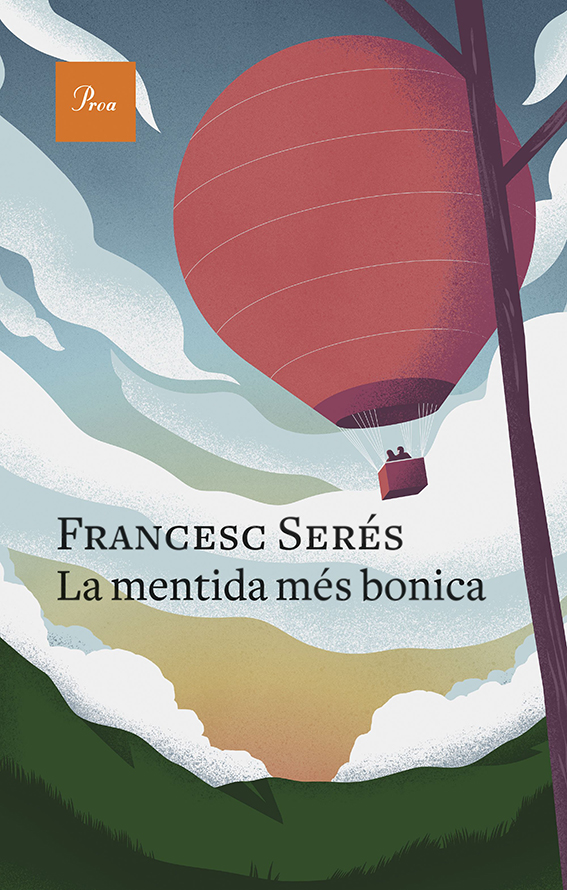 La mentida més bonica Proa, 2022
La mentida més bonica Proa, 2022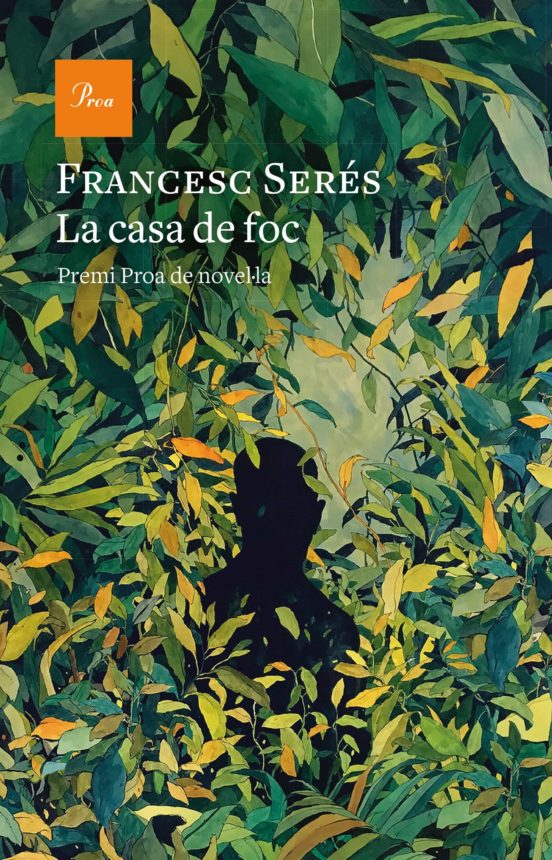 La casa de foc Proa, 2020
La casa de foc Proa, 2020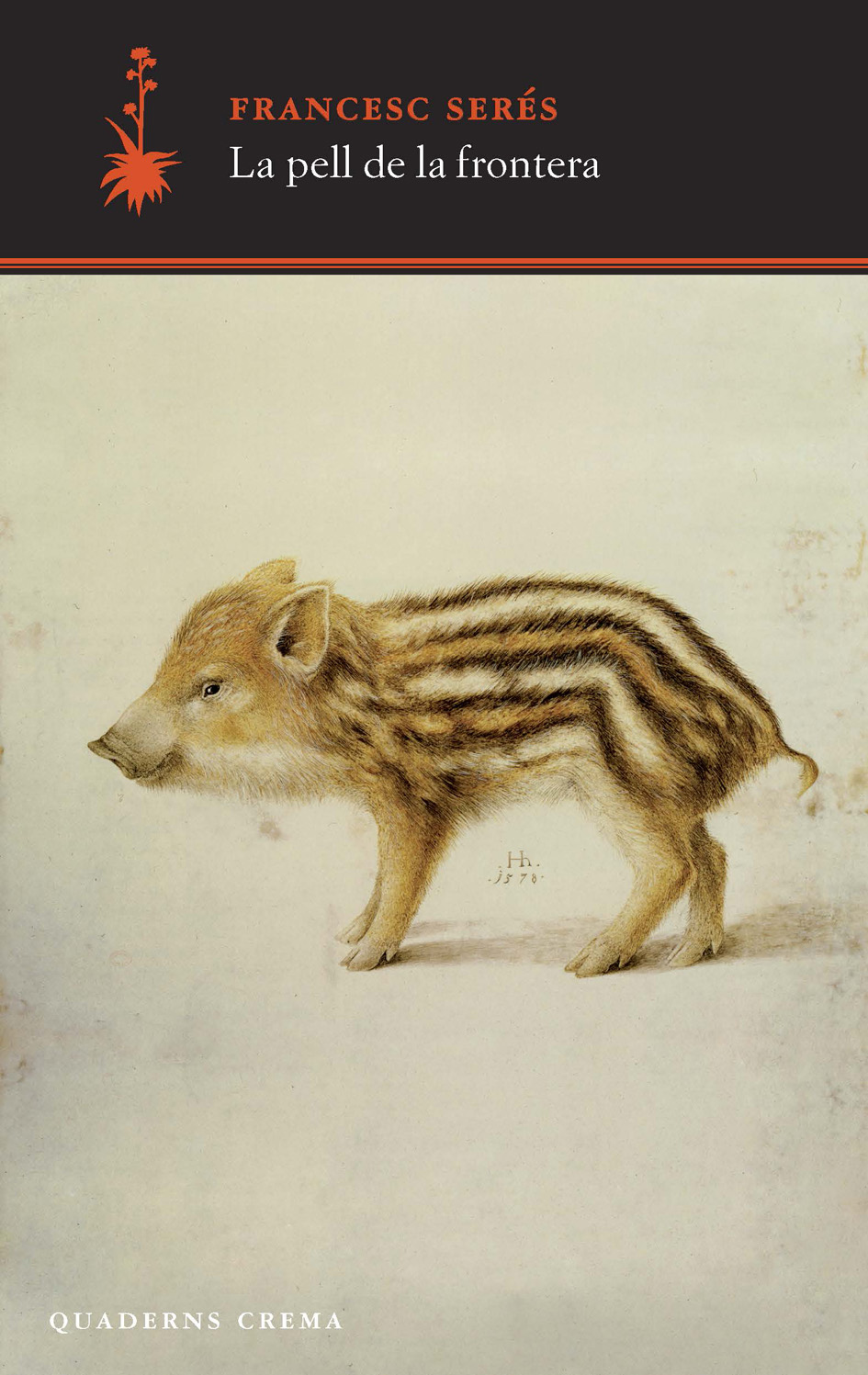 La pell de la frontera Quaderns Crema, 2014
La pell de la frontera Quaderns Crema, 2014
The newsletter
Subscribe to our newsletter to keep up to date with Barcelona Metròpolis' new developments



